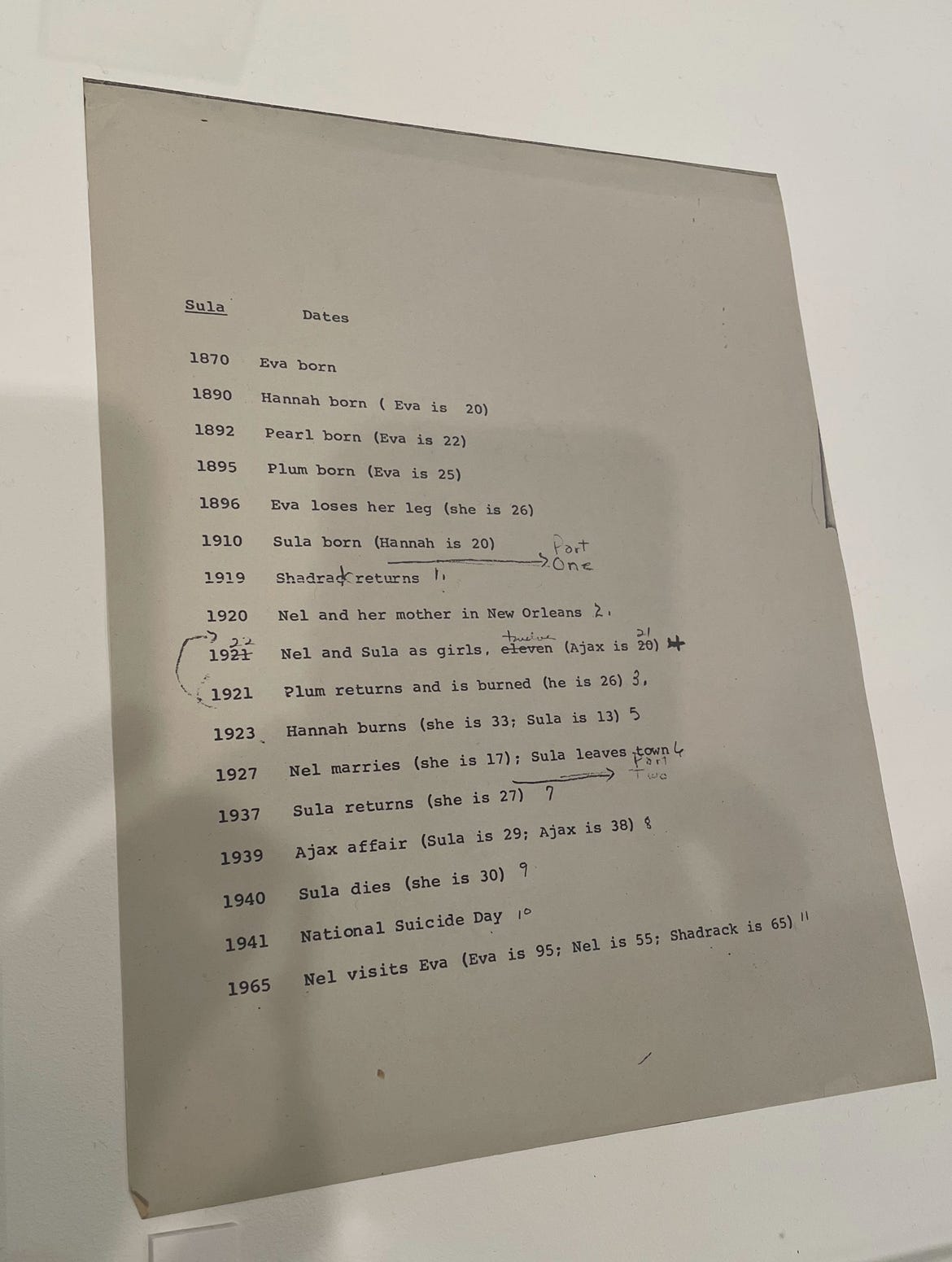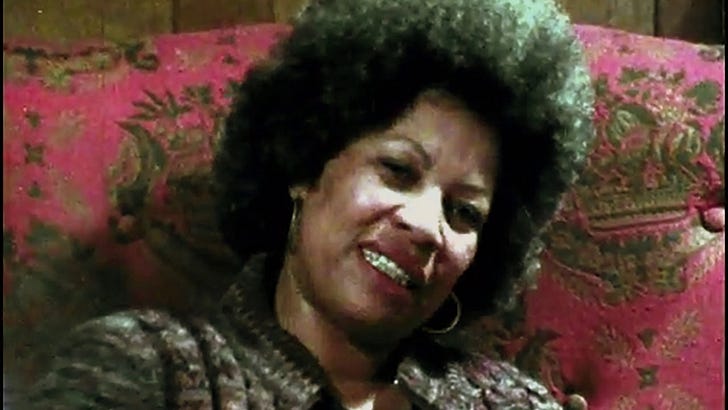Sula by Toni Morrison: A Syllabus
November, 2023 marked the 50th anniversary of Sula's release. Below, find a living syllabus meant to encourage and support sustained engagement around the enduring questions the book poses.
“Hers was an experimental life,” writes Toni Morrison of Sula Mae Peace: The planet of a protagonist around which her second novel orbits.
Considering carefully the costs of defiance, this is a book about how we use each other to define ourselves, about how quick we are to punish incomprehensibility, about how unwilling we are to love and love and love what refuses to bend or be bent into a neat congruence, about the gift that is women with inner-eyes who are more interested in the underbelly of it all, who are willing to see unflinchingly, who rebuke the demand that they stay obedient to any meanings enforced from beyond the constitution of their own beings.
The coming-of-age story intentionally seduces and repels at once. It spits the edges of our reflections back at us, and is rife with prose capable of crushing any stable sense of self-perception; For all that we, as readers, revere or revile in each character is also a measure of how we accept or alienate such excess (or lack thereof) in the universes we inhabit beyond the pages.
The tale spreads an atlas of relation over our knees, wherein Nel and Sula are, at one point, positioned together at the earth’s core: The crucible of their becoming plays out against the backdrop of a shared hum, all life seems to propel outwards from their own mutually-defined center. Their intimacy reads, at first, as fire-proof – Until a series of literal and metaphorical conflagrations set the two toward contrapuntal paths of self-making, and subsequently, place their sisterhood onto the nuclear terrain of fundamental misunderstanding.
As fluency in the language of commitment forged across the glistening arc of their girlhood atrophies in both directions, Sula sweeps down to the South Pole and Nel, to the North – the former a pariah, the latter distinguished in the eyes of the town. As the story continues to unspool, Morrison crumples the map onto itself, illustrating that each cardinal direction is not, in fact, distinct, and that perception remains as pliable as paper: Fold the atlas in half and suddenly Nel and Sula, North and South, distinction implodes… As remarked to Nel at a crucial moment in the text: “You. Sula. What’s the difference?”
To this end, Manwali Serpell writes: “No matter how many times I reread Sula, analyze her names, untangle her threads, the light of her slips through my fingers. Some small thing that lives in my chest and has a bell for a tongue knows the truth of the matter: Sula is Sula.” Indeed, “Sula is Sula” – Ungraspable and essential as light itself… Flesh can burn, flesh can be burned. Flesh can love and flesh can betray (such is the nature of what breathes) – Flesh can also, fatally, mistake the sinew that conjoins the two.
I wonder, still, about the kind of imagination it takes to love a wayward woman… a woman like Sula… a woman like myself… a woman like so many those I know, like so many of those I love… women who kneel only in the name of adoration that doesn’t flinch at their magnitude, that doesn’t shrink or shy away from the expanse, women who are ravenously hungry for rubrics of relation capacious enough to let illegibility be what it is, to let voracity be what it is, to let madness be what it is, to be held and held and held through it all. And with that, I wonder about the sort of love it takes to rock up onto the edges of the “experimental lives” we so desire and ceaselessly begin living them…
A Dew-Lined Web: On Sula by Namwali Serpell, quoted above
Here, Toni Morrison expounds upon the governing logic of the text and reads the final few pages aloud… (8:40-16:08)
Despite Morrison’s rebuke, Sula is often positioned as a queer novel. Below are several essays that consider the homoerotic dimensions of the prose:
Toward a Black Feminist Criticism by Barbara Smith
“Everything I know about being femme I learned from Sula” or Toward a Black Femme-inist Criticism by Sydney Fonteyn Lewis*
Desire under the Closed Water: Homoeroticism in Toni Morrison’s Sula by Erika Udono

Sula’s wisdom is elucidated through the work of contemporary artists like…
Jamila Woods,
and Alison Saar, (particularly her Torch Song series)
Here, Morrison herself reads Sula aloud in its entirety:




Have not read the book yet, but after reading this beautiful article I’m so excited to dive in the world of Sula!
beautifully written!